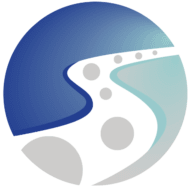Frequently Asked Questions
Chronic conditions come in many types. Acupuncture can help manage them.
Being actively involved in your treatment is an important part of the healing process. In order to be involved it is important to understand what to expect during and after treatment. Here are some of the most common questions people have about acupuncture.
If you still have any questions after reading these over please contact us.
How are appointments made and what is the cost?
Please call our office at 614.233.1826 to schedule your initial consultation. At the consultation, we will talk with you and determine if acupuncture will be a good fit for you. If we think we can get you back to doing the things that you want to, we will present our recommendations to you and help get you on the path to feeling your best. If we don’t think we can help you, we will refer you to someone else who may be able to. Treatment costs will very depending on your specific case and recommendations.
What should I do before my visit?
Please fill out the digital forms sent to your email address when you scheduled your appointment. The link can be found in your confirmation email.
What should I wear to my appointment?
Wear loose clothing to allow the acupuncturist access to the problem area. Usually if you can easily pull your clothing up to knees and elbows comfortably you should be fine. Blankets are always available if needed.
What should I do after my appointment?
There are no real precautions to take after treatment. You can continue your day as normal. Take note of any changes in the way you feel so that you can report them to your acupuncturist on your next visit.
How does acupuncture work?
The simple answer is that it gets the body to fix itself.
If you want to dive deeper you can keep reading:
This is the most common question people have and probably the hardest to clearly explain. There are two ways to look at acupuncture – from the Traditional Chinese Medicine (TCM) view and from the western medical view. Living in a society where the western medical prospective is the norm it is hard to make sense out of the TCM view. Traditional Chinese Medicine developed mostly from observations. During its development it was considered taboo to cut the body open so TCM is mostly based on observations that the doctors were able to make. The theory is that the energy running throughout the body is called qi (pronounced “chee”) and it flows in river like pathways called meridians. This qi, or vital energy, is what makes you alive and maintains your health. There is an ancient Chinese medical saying “Where there is free flow there is no pain; where there is no free flow, there is pain.” This means when you are healthy the qi flows freely and your body is balanced. When something happens and the qi stagnates or gets stuck the body becomes out of balance and illness results. There are a number of things that can cause the qi to stagnate ranging from improper sleep to improper nutrition to injury or strong emotions. This is where acupuncture comes into play. The locations of the needles are based on the specific unbalance in the body. Each point has a specific effect on the body and alerts the body to react in a specific way. The goal of the needles is to resolve the problem and get the qi flowing smoothly again. They allow the body to heal itself. That is why there is no “magic needle” that will cure every problem. It is the body itself that does the healing; the needles just help direct it.
“Natural forces within us are the true healers of disease.” – Hippocrates, the father of modern medicine
There are numerous studies being conducted to help understand acupuncture from the western medical view that is more common to most of our society. These studies are trying to understand the “mechanism of action” of acupuncture. They are discovering that acupuncture has multiple mechanisms of action including promoting circulation, reducing inflammation, releasing pain-inhibiting endorphins, regulating endocrine function, and increasing immune function. Please visit the National Institutes of Health (NIH) National Center For Complementary and Intergrated Health at https://www.nccih.nih.gov/health/acupuncture-what-you-need-to-know for additional information.
What to expect to feel during a treatment?
Acupuncture is a relaxing experience for most people. Some patients feel slight discomfort when the needles are inserted. This feeling quickly subsides once the needles are inserted to the correct depth. Once the needles are in place you may feel a strange energetic sensation. This sensation is called “de qi” or “the arrival of qi” and may feel like a numbness, heaviness, or tingling sensation. De qi is an important part of the treatment. This sensation may just be something that feels “weird” or that you can’t describe. If at any point something becomes painful inform the acupuncturist and we can quickly stop the pain.
What are the needles like?
Acupuncture needles are very similar to a stiff cat’s whisker. They are flexible and very thin. Unlike a hypodermic needle, the acupuncture needles are solid. This means they do not hurt like a hypodermic needle when they are inserted. The needles come in a variety of lengths and thicknesses. The acupuncturist will use longer needles for thicker parts of the body such as the buttock and shorter needles for areas like the hands and face.
Is acupuncture safe?
Yes. To begin with the needles are all sterile, single-use disposables that are approved by the FDA. Our acupuncturist is also certified in Clean Needle Technique by the CCAOM (Council of Colleges of Acupuncture and Oriental Medicine). Acupuncturists also spend several years in school learning the exact locations of all the acupuncture points and the body’s anatomy. There are very few side effects associated with acupuncture with the most common being slight bruising at the insertion sight. Some people may feel slightly dizzy or nauseous after a treatment. This can usually be avoided by not receiving acupuncture on an empty stomach.
I’m on medication. Will acupuncture interfere with it?
Acupuncture can be used in conjunction with any and all medications without concern of interaction. It is possible that you will not require the same dosage as your treatments progress so it will be important to keep your doctor informed and work with them to make any adjustments.
What kinds of treatments are used besides needles?
There are many modalities that can be used in addition to acupuncture. These include electric stimulation, frequency specific microcurrent, ozone therapy, dry needling, acupressure, PEMF, and heat therapy to name a few. Sarah will assess your specific condition and determine what the best course of treatment will be to help achieve your goals.
I don’t have any aches or pains, why would I need acupuncture?
Often the stress of everyday life goes undetected until it manifests in physical illness. Acupuncture works great as a preventative therapy by keeping your body in balance. Regular maintenance or “tune-up” acupuncture treatments are a great way to stay healthy.
Where did the business name come from?
There is an Ancient Chinese Medical Saying – “Where there is free flow there is no pain; where there is no free flow, there is pain.”
Our goal is to get your body working and flowing the way it should so that you can feel your best and live the life you want.






